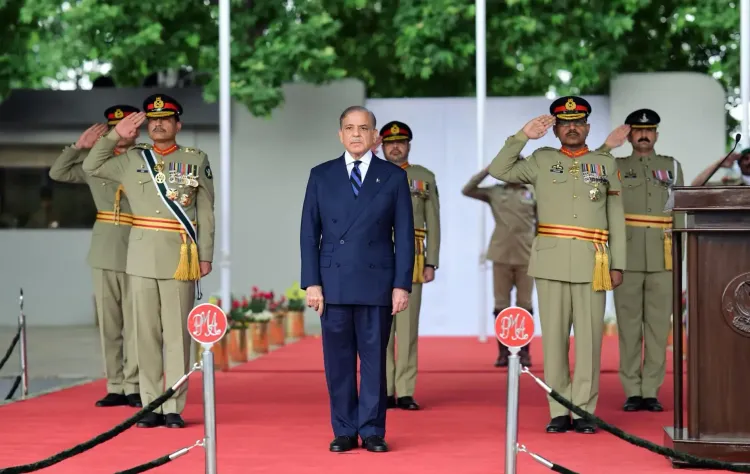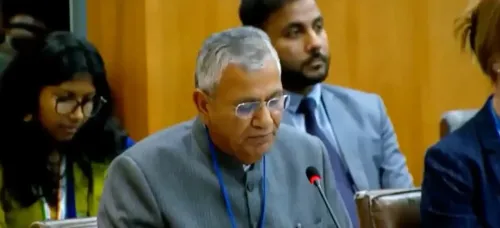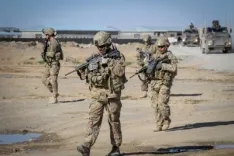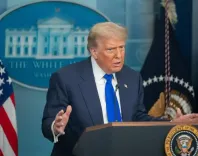Is Pakistan’s ISI Still Supporting Jihadist Groups in Kashmir?

Synopsis
Key Takeaways
- ISI's involvement in supporting jihadist groups in Kashmir is a longstanding issue.
- Proxy warfare is a key aspect of Pakistan’s foreign policy.
- International accountability and sanctions are crucial to address these challenges.
- The need for diplomatic clarity and sustained pressure on Pakistan is paramount.
- Engagement from global powers, particularly the US, is essential for meaningful change.
Islamabad, Oct 9 (NationPress) Pakistan's Inter-Services Intelligence (ISI) has been actively engaged in fostering insurgency within the Kashmir area of India by offering support and training to various Islamist jihadist factions, as reported on Thursday.
The report indicated that these terrorist organizations, including Lashkar-e-Taiba and Jaish-e-Mohammed, conduct assaults in Kashmir and other regions of India, allowing Pakistan to maintain plausible deniability.
According to a report from Afghan media outlet Amu TV, the military and intelligence apparatus of Pakistan has been frequently accused of utilizing proxy jihadist groups as instruments of its foreign policy. From the conflicts in Kashmir to the resurgence of the Taliban in Kabul, Pakistani-backed terrorist entities have persistently engaged in warfare to fulfill Islamabad's strategic ambitions. This approach has remained unchanged since the initial Kashmir conflict following independence, where non-state actors were employed as low-cost instruments to exert pressure on more formidable adversaries, evade direct conflict, and sustain influence in adjacent nations.
“What appears logical to the strategists in Rawalpindi has resulted in decades of destabilizing consequences for the region and even for Pakistan itself. It is concerning how little action has been taken globally to alter this situation. The only viable solution is to render this strategy politically, financially, and reputationally unaffordable,” the report continued.
The report noted that despite formal prohibitions, these groups continue to function from within Pakistan. The 2008 Mumbai attacks were orchestrated by LeT, revealing the extent of Pakistan's strategy, with subsequent evidence indicating that the masterminds operated from Pakistan and were affiliated with the ISI.
“It is imperative to significantly increase the repercussions for such actions by any nation, ensuring that the ongoing support for extremist and terrorist organizations becomes more detrimental than beneficial. This can be achieved through various means,” it emphasized.
The reports underscored the necessity for diplomatic efforts to openly call out and hold accountable states that support terrorism, with multilateral platforms like the United Nations playing a critical role in condemning nations that engage in proxy warfare.
Economically, implementing sanctions and reducing aid are effective methods, alongside officially designating nations as sponsors of terrorism. Financial organizations such as the Financial Action Task Force (FATF) must persist in monitoring and applying pressure on countries with such histories until terrorism financing is adequately curtailed.
“In the context of Pakistan, the most clear-cut action is to halt military assistance, provide diplomatic clarity, and impose financial and military sanctions until there are verifiable and sustained actions against all terrorist factions, without exceptions or rebranding. This initiative should commence with the United States and be supported by the broader international community,” the report concluded.









